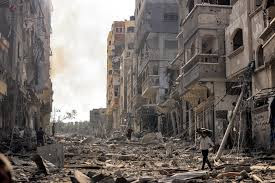Israel and Iran on the Brink of an Unprecedented War
Tensions between Israel and Iran have escalated to an unprecedented level, raising serious concerns within the international community. What was once a conflict characterized by indirect confrontations and diplomatic hostility has now evolved into direct military engagement.
The current crisis began after Israel launched an airstrike on the Iranian embassy in Damascus, Syria, which was followed by the targeted killing of key Hezbollah leaders. In retaliation, Iran fired over 200 missiles at Israeli territory, marking one of the most significant direct attacks between the two nations in recent history. In response, Israel conducted airstrikes on critical targets inside Iran as well as in allied countries such as Syria and Lebanon.
This sharp escalation increases the risk of a broader regional war that could potentially involve major global powers, including the United States, Russia, and China. There is also a growing possibility that armed groups such as Hezbollah, as well as militias operating in Iraq and Yemen, will join the conflict, further exacerbating the situation.
The consequences of this military escalation are already being felt worldwide. Oil prices have surged sharply, reflecting fears of disruptions in global energy supplies. International financial markets have reacted negatively, with stock exchanges showing significant declines as investors seek safer assets amid growing uncertainty.
Beyond the economic implications, the humanitarian impact of the conflict is alarming. Civilian populations on both sides face severe risks as airstrikes and missile attacks become more frequent and widespread.
This crisis highlights the urgent need for diplomatic intervention and international mediation. Without swift and effective efforts to de-escalate tensions, the conflict risks spiraling into a full-scale war with catastrophic consequences for the Middle East and global stability.

Comentários
Postar um comentário